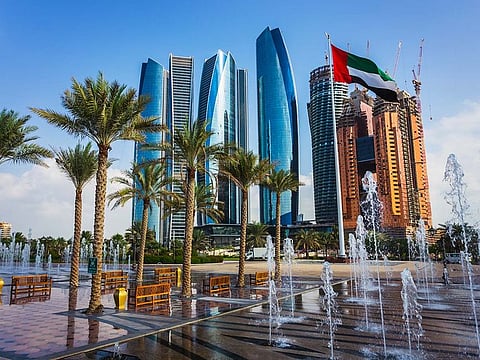UAE’s GDP forecast to grow by 6.2% in 2022 and 6.7% in 2023
Russia-Ukraine conflict has only limited impact on UAE economy

Dubai: The UAE's economic recovery is on a firm footing and the Russia-Ukraine conflict has only limited impact on the local economy, according to ICAEW [The Institute of Chartered Accountants in England and Wales] and Oxford Economics.
A pick-up in growth momentum is expected in the coming months as expansionary government policy and higher oil prices drive forecasted GDP growth.
“The UAE’s post-Covid economic prospects were already on a strong footing and will be further boosted by the recovery in both oil and non-oil revenue. The increase in government finances certainly bodes well for investment into the country’s Year of the 50th projects,” said Vanessa Heywood, ICAEW Head of Middle East.
Upbeat forecast
UAE’s GDP is forecast to grow by 6.2 per cent in 2022 and 6.7 per cent in 2023, driven primarily by a surging oil sector. Oil prices have risen above $100pb, for the first time since 2014, amid heavy western sanctions on Russian energy producers.
While the Central Bank of UAE had forecast a 4.2 per cent groth in 2022 GDP, the Institute of International Finance had forecast 4.9 per cent growth late last year. The new forecast factors in the recent big surge in oil prices and increse in government revenues from corporte taxes.
Given the UAE is among the few countries with spare oil capacity, a surge in UAE oil output is predicted over the next two years as it gradually raises production in response to pressure from consuming countries to ratchet up supplies. ICAEW expects a 12.8 per cent rise in oil GDP this year and oil output to average 3.1million b/d.
The outlook for UAE non-oil GDP is also encouraging and predicted to grow by 3.9 per cent in 2022 and 2.5 per cent in 2023. Expansionary government policy will continue to provide impetus to activity and the recent reform agenda should also bear fruit. Coupled with energy rise, the UAE’s budget surplus should increase to 9 per cent of GDP this year, a significant jump on the previous estimate of 3.6 per cent in 2021.
Inflation outlook
“High inflation, initially due to Covid, and since driven higher by the conflict in Ukraine, remains the greatest concern for global markets. However, the UAE is well positioned to remain robust with both oil and non-oil sectors performing well,” said Scott Livermore, ICAEW Economic Advisor, and Chief Economist and Managing Director, Oxford Economics Middle East.
Inflation in the UAE remains lower than in many other countries, but prices may take longer to peak given renewed global food and energy pressures. Overall, ICAEW forecasted inflation to rise to 2.5 per cent in 2022, from 0.2 per cent last year, before stabilising below 2 per cent in 2023-24.
Key to where inflation in the UAE settles once the impact of global supply-chain disruptions and food price inflation passes is the development of prices in the housing, water, electricity and gas, and critically, the evolution of residential rents.
OPEC expects UAE's economic growth to quicken in 2022
Abu Dhabi: The OPEC Monthly Oil Market Report has anticipated the UAE's economic growth to quicken in 2022, supported by the strong fiscal policy towards the private sector and a post-COVID-19 recovery in the services sector. The OPEC Report issued on Tuesday said, "The improving tourism sector and increased government support alongside the rise in crude oil prices have strongly supported non-oil private economic activities." "The strong private sector is reflected by the UAE's Purchasing Managers' Index (PMI), which rose to 54.8 in February 2022 from 54.1 a month earlier. Private-sector output grew strongly amid a recovery in market demand and increased travel activity." -- WAM
Sign up for the Daily Briefing
Get the latest news and updates straight to your inbox


